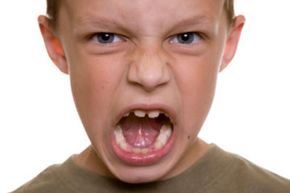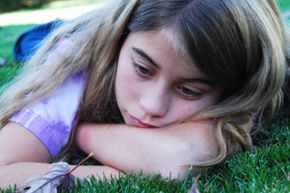Defiant behavior is a normal part of being a kid. There isn't a preschooler on the planet that doesn't enjoy at least an occasional temper tantrum, and most teenagers are fiercely dedicated to rebellion, whether or not they have a cause. Even babies are defiant, purposefully throwing their mashed peas on the floor as a way of saying, "I'm done eating and I'd like to be released from this confining high chair before I start crying." But for some kids, defiance goes beyond the realm of normal behavior. They become so uncooperative and combative that the defiant behavior interferes with their ability to learn, thrive and get along with people. This is called oppositional defiant disorder (ODD) and it occurs in about 10 percent of children in the U.S.
Parents of children with ODD know that the behavior associated with this condition is more than just that of a difficult child. ODD kids are keenly interested in challenging and upsetting the authority figures in their lives and have the unfortunate habit of blaming others for their own mistakes or bad behavior. These qualities can cause a lot of problems in a child's relationships with parents, teachers and other caregivers. Children with ODD often have severe social and academic impairments compared with their non-ODD peers. In fact, their degree of social impairment is usually greater than that of children with depression, bipolar disorder or multiple anxiety disorder [source: American Academy of Family Physicians].
Advertisement
The specific cause of ODD is unknown, but several theories are currently being explored. One offers a genetic explanation for ODD, in which children who have a family history of ODD are more likely to develop the condition themselves. In contrast, developmentally based theories are focused on a parent's response to normal defiance in the child at an early age. The idea is that the parents' reaction to defiance somehow fuels the defiant behavior. Other research seeks to identify environmental triggers of ODD in children who may be biologically susceptible to it. Such triggers may include harsh or inconsistent parenting practices, parental mental health problems or exposure to domestic violence or divorce [source: Tynan].
There are several troubling symptoms of ODD, but they're often similar to "normal" acts of defiance. So how can you tell the difference between a particularly obstinate child and one suffering from ODD? Keep reading to learn more.
Advertisement



